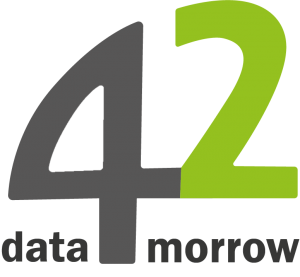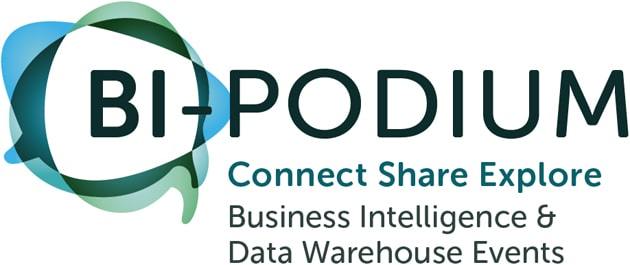From BI to Digital Business: Architecture and Technologies
data42morrow Event in Germany
Die Veranstaltung findet in englischer Sprache statt / The event will be held in English
(Unfortunately cancelled due to insufficient registrations.)
The implications span the entire IT environment, reinvent the complete depth of business processes, and recreate the full breadth of the business organisation.
Such a complete makeover demands an inclusive architecture, powerful technologies, and enterprise-wide methods. This architecture incorporates all the technological advances in databases, NoSQL stores, and data preparation, as well as SOA, metadata, distributed access, collaboration, etc. And it directly addresses current issues, such as operational BI, strategic decision making, analytics, information discovery, and enterprise-wide decision management.
Expanding from his comprehensive and respected Business unIntelligence architecture to emerging topics such as the Internet of Things, algorithms, and artificial intelligence, Dr. Barry Devlin charts how business and IT together can design and build a digital business from the existing data warehouse and BI systems running enterprises today.
- Attendees receive a complimentary copy of Barry’s book, “Business unIntelligence”
- To celebrate the Data Warehouse 30th Anniversary, Barry is offering a signed, first edition copy of his 1997 book “Data Warehouse—from Architecture to Implementation” to one selected attendee
Main Topics
- The Meaning and Implications of Digital Business
- Business unIntelligence Architecture—Business Drivers and Technological Evolution
- Data and Information—the Foundation for Everything
- Formal and Informal Business Processes—Getting from Information to Action
- People—Action-Oriented Decision Making and Engaging Innovation
- Planning and Implementation
- Emerging Ethical and Economic Considerations
What you will learn
- Business drivers and technical rationale for Business unIntelligence
- Structure and components of the new architecture
- Possibilities and challenges of new database and data management technologies, including Hadoop, NoSQL, column stores and other analytic appliances
- Using data virtualization and ETL as tools for integration of all types of content and data
- Positioning and using algorithms and artificial intelligence in support of decision making
- The importance of user context and roles in decision processes
- Practical steps to grow and improve your current data warehouse to the new architecture
Who should attend
- Enterprise, systems, solutions and data warehouse architects
- Systems, strategy and business intelligence managers
- Data warehouse and systems designers and developers
- Data and database administrators
- Tech-savvy business analysts
1. Digital Business—History and Emergence
- A brief history of decision-making support
- Origins and meaning of digital business
- Business examples, drivers and justification
2. The why and how of a new architecture
- The emergence and impact of big data, the Internet of Things and artificial intelligence
- New, future-proof hypotheses for a new architecture
- Getting beyond “layers”—Information, Process, and People Thinking Spaces of the new conceptual, IDEAL architecture
- The pillars of a new logical, REAL architecture that supports multiple storage technologies
3. The Information Resource—the Foundation for Everything
- New classes of information—human-sourced and machine-generated—and how they enter the traditional process-mediated data stores of the business
- Big data—hype and reality, sources and types, implications for business and IT
- Key considerations—timeliness/consistency, structure/context, and reliance/usage
- Metadata as information—sources and stores, tools and techniques
- Relational database evolution—structures, software and hardware
- NoSQL data stores, Hadoop-based databases, XML, JSON-based and other data stores
- New conceptual and logical architectures for all information and data
4. The Business Processes—Getting from Decisions to Actions
- The dimensions of process: Business Effect, Active Scope and Time Span
- How pervasive mobile connectivity, processing and storage combine with the Cloud to reinvent business processes
- The new role of users in “application development”
- Understanding adaptive, closed-loop business processes
- From Service Oriented Architecture to API Management and Microservices
- A model for decision making and action taking—the adaptive decision loop
- Data Preparation, ETL, Data Warehouse Automation, Wrangling, and Data Virtualisation
5. The People—Understanding Needs and Engaging Innovation
- Motivation and the workings of the human mind in business systems
- Classes of Business Intelligence—information-centric, process-centric and collaborative
- BI, analytic and other decision support tools
- Decision-making and action-taking in a closed-loop, real-time environment
- Augmenting and/or Automating decision making and action taking
- The emergence and importance of artificial intelligence
6. Planning and implementation
- Evolution—not revolution
- The Staged Implementation Roadmap
- Organisational considerations; changes in IT culture and responsibilities
- Selected possible first migration steps
7. Building the Digital Future—Key Considerations
- Ethical considerations for analytics and artificial intelligence
- The impact of digital business on the economy and social order
The Regular Price* is: € 1,800;– VAT EXCLUSIVE
*Our general conditions of participation apply to this event. Here you can download the general terms and conditions as pdf. The document is written in German and English.
*We offer a 10 percent discount for groups of 3 to 4 people. For groups of 5 to 6 people we offer a 15 percent discount. For groups greater than 6 people the discount is matter of negotiation. Please enter a group name, the group size and the contact person of your group in the comment field.





